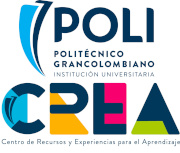ROADMAP FOR THE DEVELOPMENT OF LEARNING OUTCOMES FOR RESEARCH TRAINING
HOJA DE RUTA PARA LA ELABORACIÓN DE RESULTADOS DE APRENDIZAJE PARA LA FORMACIÓN INVESTIGATIVA

Autor
Norman-Acevedo, Eduardo
Daza-Orozco , Carlos Eduardo
Caro-Gómez, Claudia Lucía
Compartir
Metadatos
Mostrar el registro completo del ítemResumen
In the current positioning in regional and international contexts of the National System of Science, Technology and Innovation of Colombia - SNCTeI; The State has been looking hard for the development of research skills for the formation of new contingents of scientists, such exploration at first glance disjointed in the spiral model composed by the State - school / university - business and society is increasingly rooted in the promotion of the classical precepts of research where regardless of the modality (face-to-face-virtual) the level (preschool, elementary, secondary, undergraduate, graduate) or the disciplinary area, the apprehension of the knowledge is expected to be obtained through the development of research skills, the level (preschool, elementary, secondary, undergraduate, graduate) or the disciplinary area, it is expected the apprehension of structures and methods for the development of reality units or projects to solve some kind of need of the environment.This capacity management initiates a long journey on the part of the SNCTeI actors to cover the greatest number of elements that guarantee the implementation of the triad of processes inherent to research such as: empiricism, systematization and argumentation; but, unfortunately, in the eagerness to look for bureaucratic indicators associated to the report of the number of projects in formulation, in progress and finalized; they leave halfway the learning of those directly involved in all types of epistemological and ontological structures for the real resolution of problem questions and not only the promotion of enunciative documents. En el actual posicionamiento en contextos regionales e internacionales del Sistema Nacional de Ciencia, Tecnología e Innovación de Colombia – SNCTeI; El Estado ha buscado con ahínco el desarrollo de habilidades investigativas para la formación de nuevos contingentes de científicos, dicha exploración a simple vista desarticulada en el modelo espiral compuesto por el Estado–la escuela / universidad –la empresa y la sociedad cada vez más se arraiga al fomento de los preceptos clásicos de la investigación en donde sin importar la modalidad (presencial–virtual) el nivel (preescolar, básica, secundaria, pregrado, postgrado) o el área disciplinar, se espera la aprehensión de estructuras y métodos para el desarrollo de unidades de realidad o proyectos para solventar algún tipo de necesidad del entorno.
Esta gestión de capacidades inicia un largo trayecto por parte de los actores del SNCTeI para abarcar la mayor cantidad de elementos que garanticen la implementación de la triada de procesos inherentes a la investigación tales como: el empirismo, la sistematización y la argumentación; pero, que desafortunadamente en el afán de buscar indicadores burocráticos asociados al reporte de número de proyectos en formulación, en curso y finalizados; dejan a media marcha los aprendizajes de los directos involucrados en todo tipo de estructuras epistemológicas y ontológicas para la verdadera resolución de preguntas problemas y no solamente la promoción de documentos enunciativos.
Recurso relacionado
https://journal.poligran.edu.co/index.php/panorama/article/view/1813Colecciones
- Panorama [303]
Estadísticas Google Analytics
